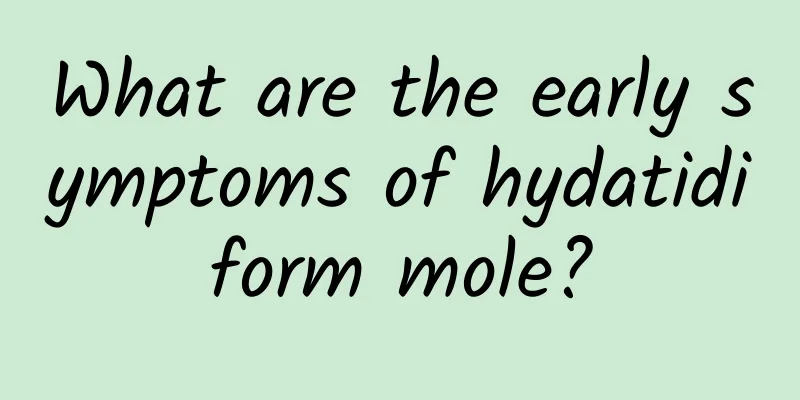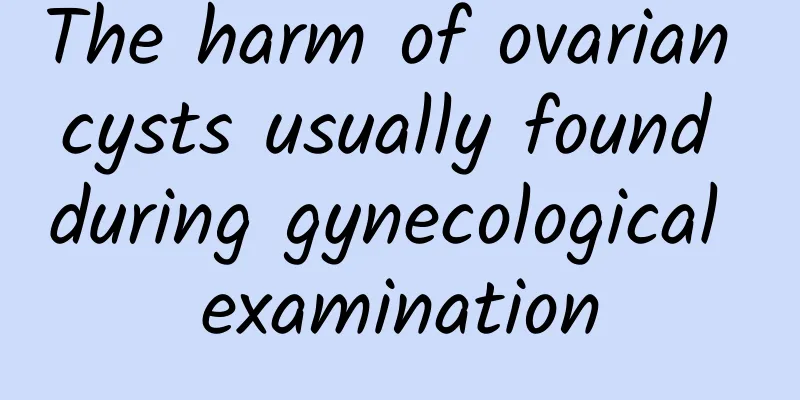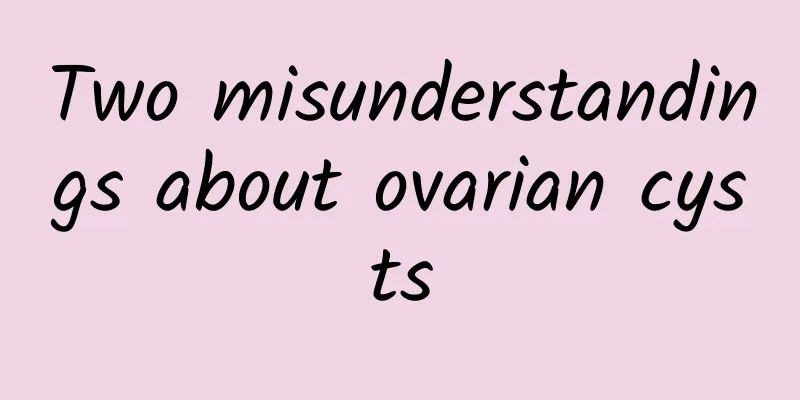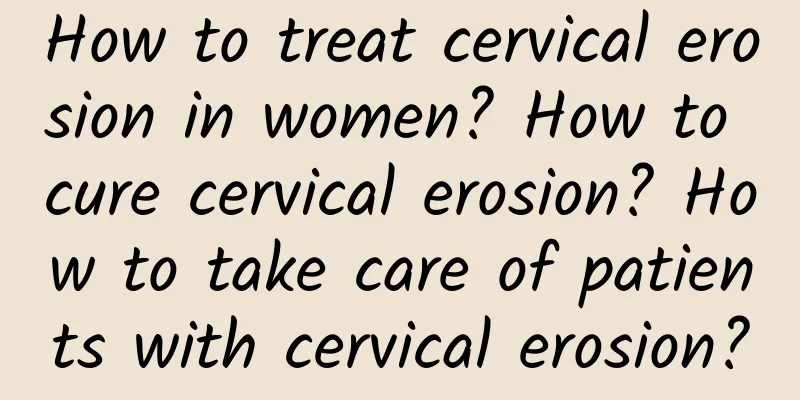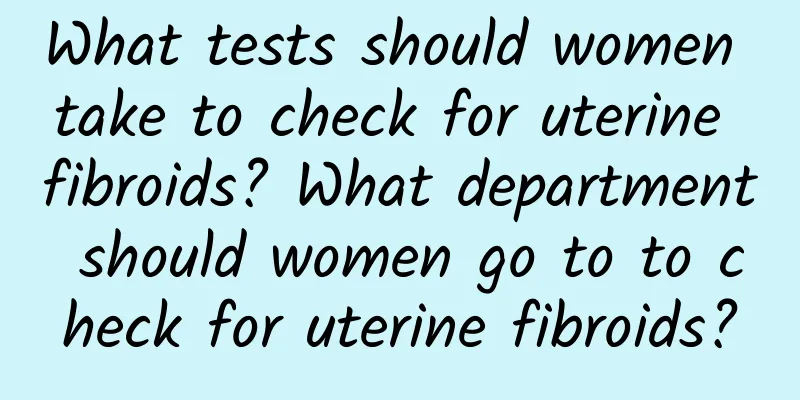What are the symptoms and hazards of uterine fibroids
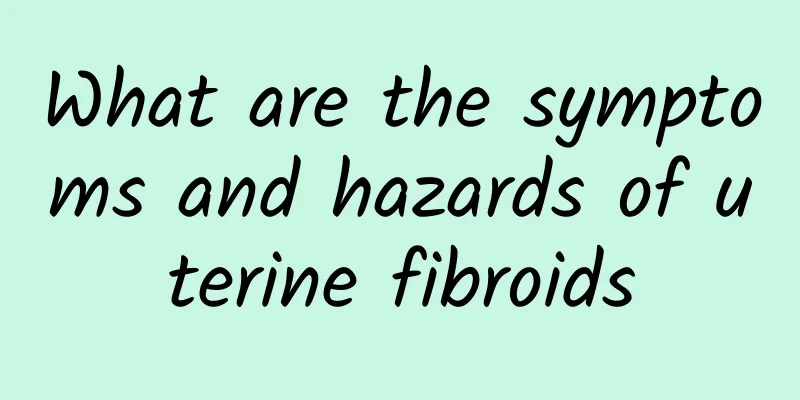
|
The main symptoms of uterine fibroids include abnormal menstrual flow, abdominal mass, back pain, and possible infertility or miscarriage. If relevant symptoms occur, you should seek medical attention in time to get a clear diagnosis and avoid delaying treatment. 1 Analysis of common symptoms The symptoms of uterine fibroids vary depending on the size, location, and number of the fibroids. ① Abnormal menstrual flow: Fibroids close to the endometrium may cause increased menstruation, prolonged menstruation, and even intermittent bleeding, which is one of the most common manifestations. Anemia may be aggravated, causing fatigue and dizziness. ② Abdominal lumps: When the fibroids grow larger, you may feel a hard lump in the abdomen, and may even feel a sense of fullness and distension in the lower abdomen. ③ Pain and discomfort: Fibroids compressing surrounding tissues may cause back pain, and some patients may also experience aggravated dysmenorrhea during menstruation. ④ Abnormal urinary and intestinal function: Larger fibroids may compress the bladder or rectum, leading to problems such as frequent urination, difficulty urinating, and constipation. ⑤ Risk of infertility and miscarriage: Uterine fibroids may affect the intrauterine environment, interfere with embryo implantation or cause complications during pregnancy. 2 The harm of uterine fibroids If uterine fibroids are not treated promptly, they may lead to a series of health risks: ① Anemia: Long-term menstrual disorders may lead to iron deficiency anemia, which may require medication or even blood transfusions in severe cases. ② Infertility: Fibroids that invade the uterine cavity over a large area or interfere with ovulation may lead to infertility. ③ Malignant transformation: Although the vast majority of uterine fibroids are benign, some patients may be at risk of malignant transformation and require close monitoring. 3 Coping strategies ①Drug treatment: Commonly used drugs include GnRH agonists such as leuprolide and anti-estrogen drugs, which can improve symptoms or shrink fibroids under the guidance of a doctor. ②Surgical treatment: Suitable for patients with severe symptoms or large fibroids. Myomectomy, hysterectomy or uterine artery embolization can be selected. The treatment plan should be selected based on personal fertility needs. ③Life conditioning: Maintain a regular schedule, avoid staying up late, and supplement iron through diet, such as consuming red meat, spinach, etc., to improve anemia symptoms. In addition, high-estrogen foods such as large amounts of soy products should be avoided. If you suspect you have uterine fibroids, it is recommended that you seek professional help as soon as possible and do not ignore the symptoms. Scientific medical treatment and good living habits can minimize the health damage caused by uterine fibroids and protect women's reproductive health. |
<<: Will there be pain after menarche if there is no pain?
>>: Will threatened abortion lead to fetal malformation?
Recommend
What are the main early symptoms of uterine fibroids?
Uterine fibroids are a gynecological disease that...
Double chin can be cured! Try Japanese "Grimace Yoga"
Can making faces help reduce double chin? The &qu...
What are the symptoms of second-degree cervical erosion in women? How to treat second-degree cervical erosion in women?
There are more and more types of diseases in wome...
Abnormal leucorrhea is an alarm for women's health
Most of the increased leucorrhea is caused by inc...
The relationship between chronic cervicitis and cervical cancer
As the most common gynecological inflammation in ...
Which hospital is better to check the thickness of endometrium?
In fact, many gynecological diseases need to be t...
Are there many cases of hyperprolactinemia being cured?
It is understood that the incidence of hyperprola...
Experts explain why female friends suffer from vulvar leukoplakia
In real life, female friends of all ages may suff...
Gold standard for diagnosis of threatened abortion
Pregnant women are very afraid of threatened abor...
3 dietary treatments suitable for patients with ovarian cysts
Ovarian cysts are very common gynecological disea...
What can I eat to control the growth of uterine fibroids? What medicine can I take to control the shrinkage of uterine fibroids?
Uterine fibroids are a common benign tumor in wom...
What anti-inflammatory drugs should be taken for pelvic inflammatory disease and adnexitis? What are the symptoms?
Pelvic inflammatory disease (PID) is a gynecologi...
Clinical manifestations of patients with dysfunctional uterine bleeding
Excluding causes such as organic lesions and bloo...
Can gynecological disease cervical erosion be cured?
Can gynecological cervical erosion be cured? Expe...
Is hydatidiform mole also considered pregnancy?
Hydatidiform mole is an abnormal pregnancy and a ...


